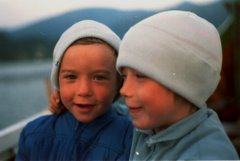The Old Masters: how well they
understood
Its human position; how it takes place
While someone else is eating or opening a
window or just walking dully along.
-W.H. Auden, Musée des Beaux Arts
 Edward Hopper: The Night Window (1928)
Edward Hopper: The Night Window (1928)
A Blog in Solidarity
 40 years ago, on this very day, the brutal noise of the Six Day War faded. As the seventh day arose, it became clear that the peace Palestine woke up to was a reality no less brutal than the war itself: The Israeli occupation of the West Bank, East Jerusalem and Gaza, and in addition the later returned Sinai and the Golan Heights. 40 years have passed, and the illegal occupation is still going strong, thanks to the goodwill of the Western world (who ironically claim to be the ambassadors of Democracy and Freedom).
40 years ago, on this very day, the brutal noise of the Six Day War faded. As the seventh day arose, it became clear that the peace Palestine woke up to was a reality no less brutal than the war itself: The Israeli occupation of the West Bank, East Jerusalem and Gaza, and in addition the later returned Sinai and the Golan Heights. 40 years have passed, and the illegal occupation is still going strong, thanks to the goodwill of the Western world (who ironically claim to be the ambassadors of Democracy and Freedom).

 It's so easy to become numb. There is a difficult balance between empathy and distance: if you're too empathetic your ability to help will drown in the misery of those who need you, and if you're too distanced it's hard to be involved enough to care. Often we end up in a paralyzing middle: we are left dazed, stunned, helpless, the misery is beyond our control, there's nothing we can do about it. And so we cry for a while, and then we go on with our lives believing that we are good people because at least our tears expressed our sympathy.
It's so easy to become numb. There is a difficult balance between empathy and distance: if you're too empathetic your ability to help will drown in the misery of those who need you, and if you're too distanced it's hard to be involved enough to care. Often we end up in a paralyzing middle: we are left dazed, stunned, helpless, the misery is beyond our control, there's nothing we can do about it. And so we cry for a while, and then we go on with our lives believing that we are good people because at least our tears expressed our sympathy. Photos from Rashedie (2003)
Photos from Rashedie (2003)
 © Silje Ryvold, Bangkok Contrast (2002)
© Silje Ryvold, Bangkok Contrast (2002)




|
Activism News
|